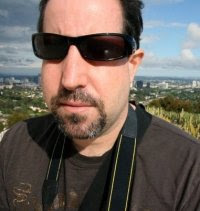Freedom From vs. Freedom To
I've been reading about how one of my favorite meta-blogs, Boing Boing is being censored across the world by a British/American software tool originally designed to protect children from seeing nudity. BoingBoing is not a porn site, but occasionally might have a photo containing a nude human being. The software can't tell the difference. This impacts our Freedom to get information.
The problems with any censorware are:
It turns out this software is not particularly good at keeping out porn sites either (i.e. False Negative) Yet, the developer continues to sell the product to governments and unwitting parents. It has no vested interest in taking it off the market until it works better, nor suggesting that perhaps parents should look after their children better. Instead it coerces websites to "cooperate".
I don't believe websites should have to cooperate in their own censorship. Adults have a right to be adults and discuss adult things. Children can be protected by getting them interested in other things besides sex (until they're old enough).
But this is a relatively benign example. What about the Freedom to be anonymous? NPR discussed how a newspaper was able to uncover supposedly secret information about CIA agents, whose lives depend on being hidden. The down side of all this tracking of people (in the name of security) is that being hidden is next to impossible. The agents' information was simply the wake created by standard transactions, like mortgage payments. Freedom to be hidden is at odds with Freedom of access to information.
Whether or not you're in a supposedly Free country or not, Freedom is not a constant value. It's a tug-of-war between entities -- Governments, Individuals, Corporations. It's a tug-of-war between security and convenience.
I'm wary of software solutions to enforcing who wins that tug-of-war.
The problems with any censorware are:
- False Positives, or good things getting tagged as bad.
- False Negatives - bad things getting tagged as good.
- The inherent self-interest problem of anyone in control of what is good/bad
- The potential for misuse if applied on a large scale (i.e. oppressive governments)
It turns out this software is not particularly good at keeping out porn sites either (i.e. False Negative) Yet, the developer continues to sell the product to governments and unwitting parents. It has no vested interest in taking it off the market until it works better, nor suggesting that perhaps parents should look after their children better. Instead it coerces websites to "cooperate".
I don't believe websites should have to cooperate in their own censorship. Adults have a right to be adults and discuss adult things. Children can be protected by getting them interested in other things besides sex (until they're old enough).
But this is a relatively benign example. What about the Freedom to be anonymous? NPR discussed how a newspaper was able to uncover supposedly secret information about CIA agents, whose lives depend on being hidden. The down side of all this tracking of people (in the name of security) is that being hidden is next to impossible. The agents' information was simply the wake created by standard transactions, like mortgage payments. Freedom to be hidden is at odds with Freedom of access to information.
Whether or not you're in a supposedly Free country or not, Freedom is not a constant value. It's a tug-of-war between entities -- Governments, Individuals, Corporations. It's a tug-of-war between security and convenience.
I'm wary of software solutions to enforcing who wins that tug-of-war.
Labels: politics



2 Comments:
By sentiment, I am a militant Libertarian. I have a different emotional reaction to governmental snooping, though, from that of most Americans. I could not care less about the NSA monitoring telephone conversations. In fact, I could be content with cameras and microphones all over my house, car, and all places public.
I really don't see why I should be troubled by being monitored. I do not want any interference, however. There inlies the bugaboo. People have a hard time knowing, but not acting on their knowledge. Censorship is interfering, that's not okay.
There are a few reasons to be concerned about excessive monitoring:
1) It's expensive, wasteful, inaccurate with extremely minimal return.
Ok, great. You've got petabytes of data on everyone. How are you going to wade through it all? Even with all the fastest computers in the world, or thousands of trained (uncorruptable and perfect) people, you will spend millions and if lucky, find a handful of useful examples to base court cases on.
Even the best data mining algorithms are inherently frought with errors. I keep hearing people say "Oh, well someday the technology will exist that gets us some % improvements" Big deal. The % had better scale with the cost in money and in errors, or you're throwing away money and sacrificing quality of life.
2) Like you said, entities with knowledge tend to act on that knowledge.
After all, someone has to pay for all this technology and justify its existence. It's in their best interest, whether it's the companies that make the monitoring technology, or the agencies being paid to "thwart" a particular problem (like "child might see porn" or "children might hear bad words" or "terrorists might get information" ).
3) How can you be certain that only the entities with the issues you want to support will get to monitor you?
Post a Comment
<< Home